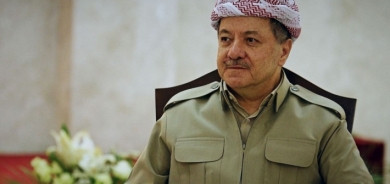The Peshmerga, the West's Best Defense Against the Islamic State
September 13, 2015
From Media

An anti-ISIS conference was held in Paris on June 2.
In attendance was the United States, staunch in its refusal to put soldiers on the ground.
As well as Saudi Arabia, which was responsible for the working group on the "resources" of the Islamic State. (Am I dreaming, or did the Saudis have a role in its initial financing?)
And Turkey, chairing the group on "movements of combatants." You read that right. Turkey, yes, which everyone knows is one of the main gateways for would-be jihadists coming from, or returning to, Europe!
Australia because it was good enough to send a handful of instructors to the Emirates.
Iraq, whose army had collapsed two weeks previously in Ramadi.
Plus, some 15 representatives of countries such as New Zealand and Belgium that had no apparent reason for being there.
But, the only armed forces that, so far, have stood up to the beheaders, the only ones capable of holding a front a thousand kilometers long, the only ones that have not yielded an inch of ground (and have even retaken essential strategic positions near Sinjar and above the Mosul dam), the army without whose help the symbolic city of Kobane would have fallen in January into the hands of the barbarians that had gained control of three-fourths of it -- the Kurdish armed forces, the army of the Iraqi Kurds and its heroic Peshmerga -- were not invited.
The incident may appear purely anecdotal.
Especially since the absurd meeting in Paris obviously came to nothing.
But it is indicative of the hold over the coalition of two actors whose war aims are at the very least problematic.
First, Iraq, of which Kurdistan is, administratively, only an "autonomous region" and whose leaders preferred to do without the accounts of the only combatants who had something specific, concrete and positive to report rather than yield an iota of their failed sovereignty.
Second, Turkey, whose membership in NATO has, so far, not induced it to deviate from its obsessively anti-Kurd line. "I will do anything and make any alliance," Erdogan seems to think: I am ready to play the card of the most radical and criminal Islamic fundamentalism, rather than take the slightest risk of seeing the Turkish Kurds point to the valor of their brothers in Iraq and remind the international community of their own unacknowledged rights.
The situation could not be more tragically clear.
Since President Obama will, under no circumstances, commit ground troops, two forces and two forces only, are capable of holding back the Islamic State.
The Shiite militias, on the one hand. But this is far from a sure thing. To date, the military capacity of the militias has not been clearly demonstrated. And if it were to be, the price to the region would be a dramatic strengthening of Iran and a multiplication of the cortege of war crimes, collective punishments of Sunnis and Christians, kidnappings, and terror already seen in the villages "liberated" by the "brigades of vengeance."
There remains the Peshmerga, who, I repeat, are the only force to have inflicted decisive reversals on the enemy and whose political agenda, proven preference for pluralism, conception of Islam (freedom of conscience, freedom to choose one's faith) and recognition of the role of women in society as in the armed forces are unparalleled in the Muslim world and would become, if the Kurds prevailed, a model for the region.
So, are we willing to help the Kurds help us?
Will we help them help us to promote the values of democracy and law?
To do so would be the reasonable and honorable choice.
It is the only possible choice for a coalition that seeks to vanquish terrorism while also saving civilization.
But it is true that this solution requires the delivery to Erbil of Milan wire-guided missiles, anti-tank weapons, and tanks, all sorely lacking among the Peshmerga and without which the best fighters in the world ultimately are powerless in the face of the intensely motivated and heavily armed barbarians who have just laid claim to the Iraqi army's arsenals in Ramadi.
And it is equally true that such massive military aid would presuppose a firm resolve to override Baghdad's veto, to go against Ankara's cynical calculations, and to sidestep the dangerous trap being set by Tehran -- in short, to oppose the grand strategies of the three empires -- Arab, Ottoman and Persian -- that are currently reconstituting themselves, and not in a way that would suggest a return solely of the best of their heritage.
In welcoming to Paris in April a group of Peshmerga commanders led by cabinet minister Mustafa Said Qadir, French president François Hollande seemed ready.
But where are his allies? What are they waiting for? Are they resigned to let history be written without them -- that is, against them (as typically occurs by default) -- in this new hurricane belt that stretches from Baghdad to Damascus and whose ripples are felt in New York, London, Berlin and Paris?
We'll know in a few weeks.
Despite their admirable courage, the Kurds won't hold out much longer without reinforcements.
Translated by Steven B. Kennedy
Bernard-Henri Levy is a French philosopher and writer.











